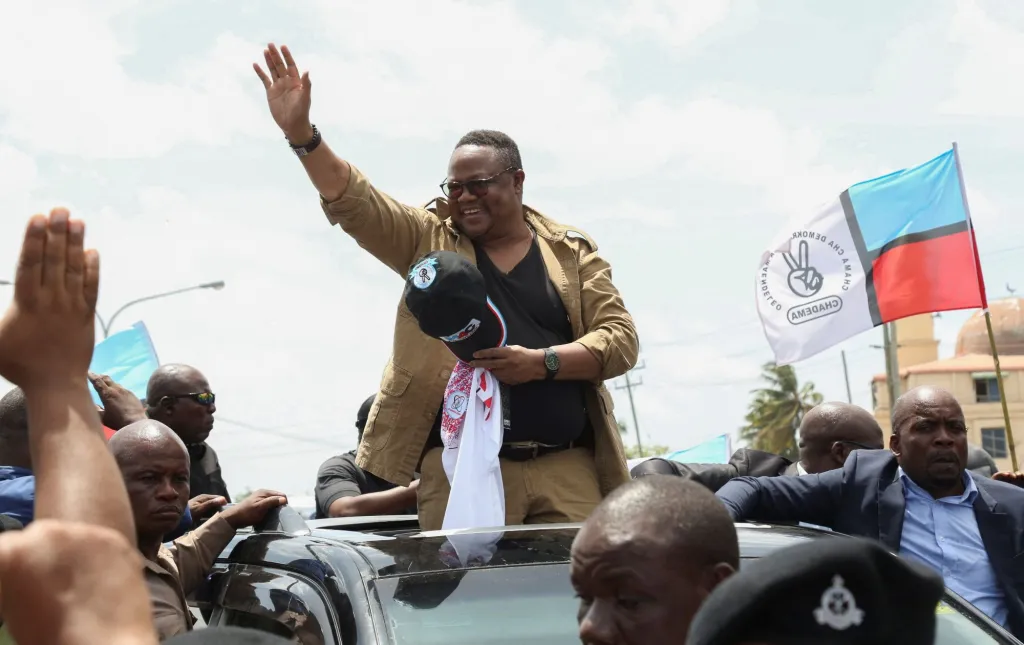Tanzania’s opposition leaders arrested as political tensions escalate

Tanzania's opposition leaders arrested as political tensions escalate
Tanzania is witnessing a surge in political unrest as the police arrested several key figures from the opposition party, Chadema, along with numerous supporters, on September 23, 2024.
The arrests come amid growing tension ahead of the 2025 presidential election, following a protest organized by the opposition despite its official ban.
The demonstration was planned to demand accountability for the alarming disappearances of Chadema members, but the crackdown by authorities has heightened fears of increasing authoritarianism.
Rising Tensions Ahead of 2025 Presidential Elections
With the 2025 presidential elections looming, the political atmosphere in Tanzania has grown increasingly fraught.
The arrest of Chadema’s president, Freeman Mbowe, and his deputy, Tundu Lissu, underscores the mounting pressure on the opposition.
Authorities had banned the protest, citing concerns over potential unrest, yet Chadema proceeded with plans to take to the streets of Dar es Salaam, defying a heavy police presence in the country’s commercial capital.
“The dates were set, and decisions made, without proper consultation,” said Oumar Sarr, the opposition’s spokesperson.
He criticized the government for marginalizing the opposition, warning of a political “trap” aimed at diminishing their chances in the upcoming election.
Arrests and Crackdowns
What began as a peaceful protest soon turned into a mass arrest operation, with over 50 individuals, including Chadema youth supporters and journalists, taken into custody.
The Tanzanian police defended their actions, claiming they were necessary to prevent potential violence.
However, opposition members argue that the arrests are part of a broader effort to silence dissent in an increasingly authoritarian environment.
Tundu Lissu was reportedly arrested at his home by riot police, while Freeman Mbowe was detained during a press briefing.
These prominent opposition leaders have once again become focal points in Tanzania’s political struggle, accusing the government of stifling political opposition ahead of key elections.
Political Killings and Disappearances
The protest was sparked by the murder of Ali Mohamed Kibao, a senior Chadema official who was abducted and found dead under suspicious circumstances.
Chadema believes the killing was politically motivated, citing the unexplained disappearances of five other party members as evidence of targeted repression.
Despite the government condemning Kibao’s murder, Chadema continues to push for an independent investigation into the killings and the disappearances.
Calls for justice have extended beyond Tanzania’s borders, with the U.S. Embassy in Tanzania and several international NGOs urging for impartial investigations into the political violence and arrests.
A Return to Authoritarianism?
After showing signs of political openness upon her rise to power in 2021, President Samia Suluhu Hassan is now facing accusations of reverting to the repressive practices of her predecessor, John Magufuli.
The opposition briefly regained some freedom in 2023 when restrictions on political gatherings were lifted, but the recent wave of arrests signals a troubling backslide for Tanzania’s democracy.
Critics fear that the arrest of Chadema leaders and the repression of political dissent are part of a broader strategy to suppress opposition as local elections in November 2024 and the presidential race in 2025 approach.
In August, over 500 Chadema supporters were arrested in a similar crackdown during another banned protest.
Democracy Under Threat
With the local elections and presidential vote on the horizon, the government’s heavy-handed tactics risk overshadowing Tanzania’s democratic process.
Opposition leaders warn that arrests, disappearances, and political violence are being used as tools to suppress dissent and secure the ruling party’s control.
Chadema, meanwhile, vows to continue its fight against what it sees as escalating political repression.
As the situation worsens, international observers express growing concerns about the erosion of civil liberties in Tanzania, a nation once regarded as a relatively stable democracy in East Africa.
The coming months are likely to define the country’s political future, as opposition parties face an uphill battle against a government increasingly accused of authoritarianism.
About The Author
dailymailafric
I am an avid African news observer, and an active member of Daily Mail Africa.
I’m Passionate about staying informed on diverse topics across the continent,
I actively contribute to publishing on political, economic and cultural developments in Africa.



